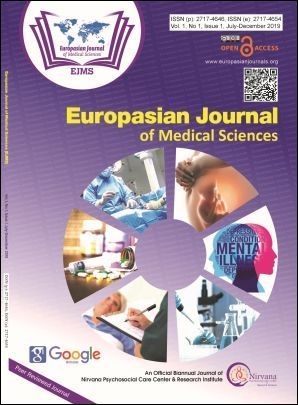Impact of Pharmacist Counselling on Medication Adherence among Elderly Patients on Antihypertensive Therapy in a Tertiary Care Hospital of Nepal
Keywords:
Pharmacist, Blood Pressure, Counseling, Elderly, Hypertension, Medication AdherenceAbstract
Background: Poor adherence (compliance) is common with antihypertensive medications among elderly patients. As the elderly people are prone to multiple comorbidities, they are at higher risk of polypharmacy and therefore may present with a higher risk of non-adherence to medications compared to the younger population. The study was conducted to investigate the impact of pharmacist counseling on medication adherence among elderly hypertensive patients.
Methods: The elderly hypertensive patients who visited the out-patient department at Chitwan Medical College (CMC) between August to November 2018. The face-to-face interview was conducted among 332 elderly hypertensive patients, selected with the purposive sampling technique. A paired t-test was used to show the difference between pre-test and post-test medication adherence.
Results: It was found that 13.85% of patients were poor adherent and 86.14% low adherent in the intervention and the control group. The major reason for non-adherence was found to be carelessness about taking medicine (97%). The adherence score for intervention group changed from 1.60±0.83 to 3.95±0.56 (p-value < 0.001) while in the control group the average score before and after follow up was 1.48±0.77 and 1.51±0.80 (p=0.373) respectively. Blood pressure status improved in the intervention group than the control group (p<0.001). Polypharmacy was 27.71%, 15.66% of whom experienced adverse drug reactions.
Conclusion: The patient medication counseling had a good impact on hypertensive patients. All factors of the Morisky Green Levine adherence scale improved after counseling and motivation. Pharmacist-led counseling improved medication adherence among elderly hypertensive patients.
Downloads
Downloads
Published
How to Cite
Issue
Section
License
The author(s) retain the ownership of the copyrights for their work published in EJMS without any restrictions. Upon submission, the author(s) grants EJMS a license to publish, including to display, store, copy, and reuse the published content.
License to Publish
By submitting a manuscript to EJMS, the author(s) grant the journal a non-exclusive license to:
- Publish and distribute the content in all formats, media, and platforms (both existing and future), while identifying EJMS as the original publisher.
- Reproduce, display, and store the content in both print and online formats, including institutional and digital repositories.
- Translate, adapt, and summarize the work, including reprints, extracts, and abstracts.
- Develop derivative works based on the original content.
- Include the work in electronic databases and provide links to third-party materials.
Creative Commons Licensing
In addition to EJMS’s publishing rights, authors grant third parties the right to use, share, and distribute their work under the Creative Commons Attribution 4.0 (CC BY 4.0) International License. This allows unrestricted use of the content, provided proper attribution is given to the original author(s) and the journal.

